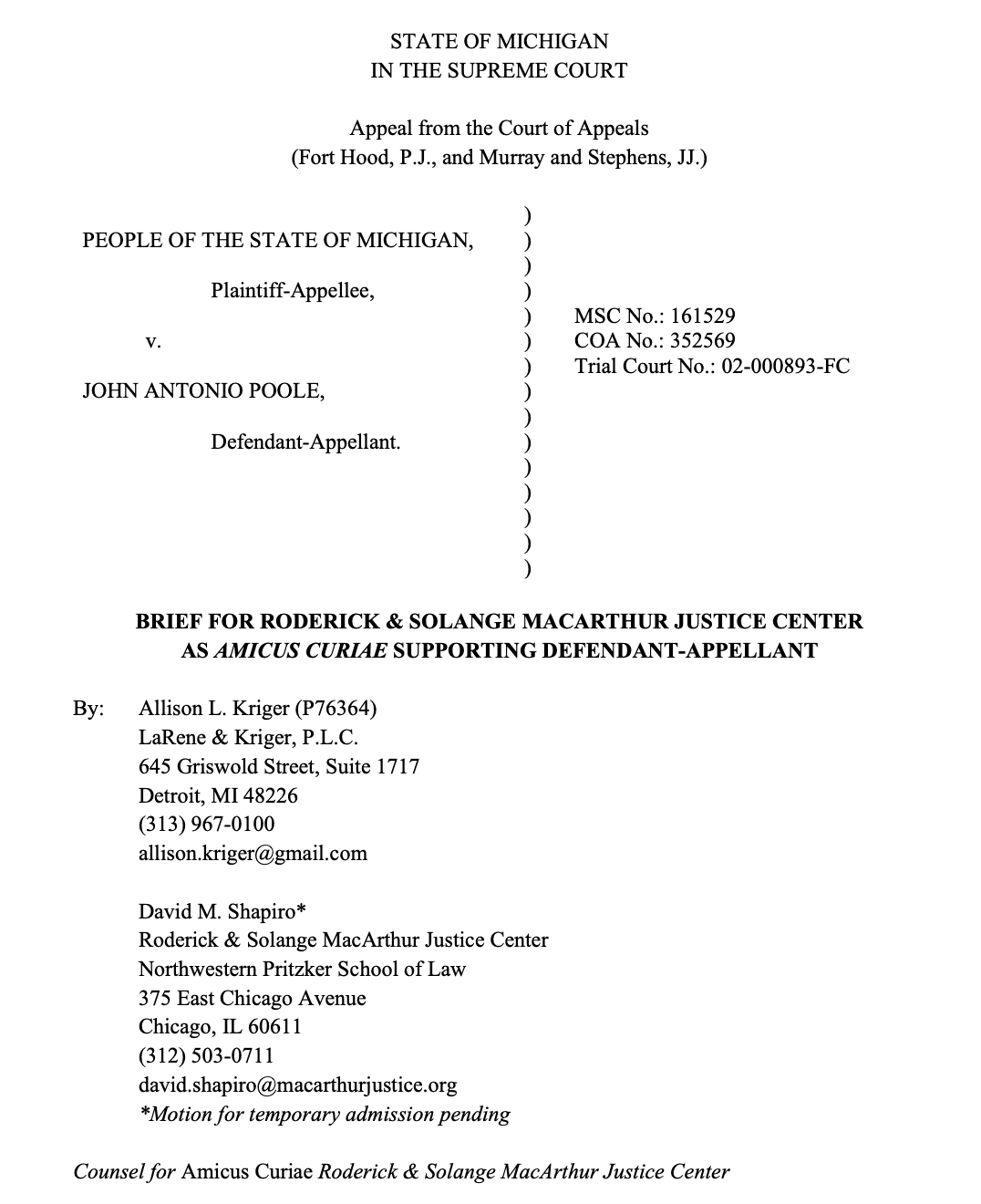
Summary of Argument
This Court should hold that young adults like Mr. Poole cannot be sentenced to a mandatory sentence of life without parole. In other words, the Court should extend the rule of Miller v Alabama, 567 US 460 (2012), to young adults. The Court should do so under article 1, section 16 of the Michigan Constitution, which sweeps more broadly than the federal Eighth Amendment. Whereas the Eighth Amendment prohibits penalties only if they are both “cruel and unusual,” US Const amend VIII, this state’s Constitution forbids any punishment that is either “cruel or unusual,” Mich Const 1963, art 1, § 16. As this Court repeatedly has recognized, that linguistic difference has real bite and commands a broader interpretation of the Michigan Constitution as compared to the federal Eighth Amendment. A sentence may violate the Michigan Constitution based on cruelty alone, regardless of whether the penalty is usual or unusual. That difference matters here because mandatory life-without-parole sentences for young adults are cruel, as the defendant’s supplemental brief amply demonstrates, see pp 11-21, 35-36. The cruelty of such sentences means that they violate the Michigan Constitution.
While the text of the Michigan Constitution does not define “cruel,” the debates at the 1850 Constitutional Convention shed light on the meaning of the term. The Constitution of 1850 adopted the current wording of article 1, section 16; every subsequent Michigan Constitution has followed suit. The 1850 debates make it clear that the delegates believed that a punishment could be cruel if it disregarded the possibility of reformation. A mandatory life without parole sentence for young people is cruel in precisely this way: Such a sentence automatically disregards the possibility of reform, even though youth increases the chance that a defendant is capable of reform.
Extending the rule of Miller to young adults would align this Court with the growing recognition among state high courts that they must pick up where the federal courts have left off in their interpretation of the federal Eighth Amendment, particularly when it comes to sentencing youthful defendants. State supreme courts like this one are the ultimate arbiters of their state’s own foundational documents. They must not hesitate to go beyond the federal Constitution where their own constitutions demand that they do so.